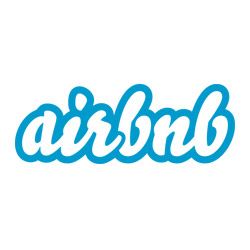
After puffing up its chest in that way start-ups do over potential government regulation, Airbnb is not disputing the numbers. According to a new report by state attorney general Eric Schneiderman — titled Carrie Bradshaw–style, “Airbnb in the City” — 72 percent of local full-apartment listings on the rental site are technically illegal, with commercial Airbnb-ers and not share-economy dabblers (although that line is often intentionally blurred) making most of the money.
“We need to move forward,” Airbnb spokesman Nick Papas told the New York Times without quibbling about the figures. “We need to work together on some sensible rules that stop bad actors and protect regular people who simply want to share the home in which they live.”
The report comes amid an ongoing tug-of-war between the start-up and the state over user info, a struggle that resulted in Airbnb turning over anonymized data about nearly half a million Airbnb stays in more than 35,000 properties. This is what Schneiderman found, via the Times:
The report said the service was dominated by large-scale operators, finding that 6 percent of the hosts made 37 percent of the revenue — or $168 million. The number of units they administered ranged from three to 272. The individual with those 272 units charged an average of $358.19 a night, yielding $6.8 million, the report says.
In other words: not home sharing, but illegal hotels and hostels, mostly in tourist-heavy destinations like the Lower East Side, Chelsea, and Soho, which made up 40 percent of the revenue, or $187 million.
Jessica Pressler covered the fight in a recent New York story:
Airbnb maintains it has no problem with regulation. It even offered to pay—or rather, have hosts pay—the same taxes levied on hotels, although the offer was initially rebuffed. “Because it would legitimize our business model!” says [David Hantman, Head of Global Public Policy at Airbnb]. But the company has thus far resisted installing, say, an algorithm that would block people from listing multiple apartments. “Some cities want property groups” listing multiple apartments, explains Chesky. When the company quietly deleted some 2,000 listings belonging to what looked like illegal hotels the day before an April court date with the attorney general, it was because they were bad hosts, according to Chesky. “We weren’t aware of how many property groups there are in New York,” he says. “When it was brought to our attention, we started looking at it and we realized, actually, these people all provided bad experiences and get a lot of customer complaints. We said, ‘You know what? These people, what they’re doing, we don’t stand for.’ So we removed them.” This might not be a great long-term strategy.
They’d better come up with a new plan soon.





























